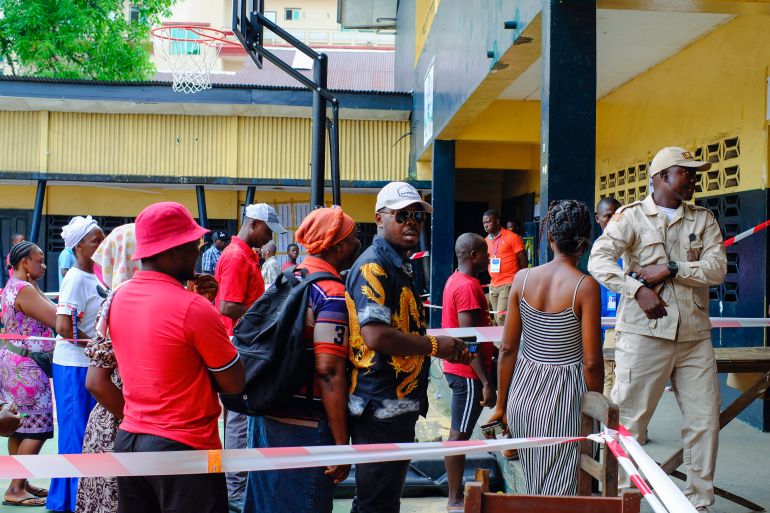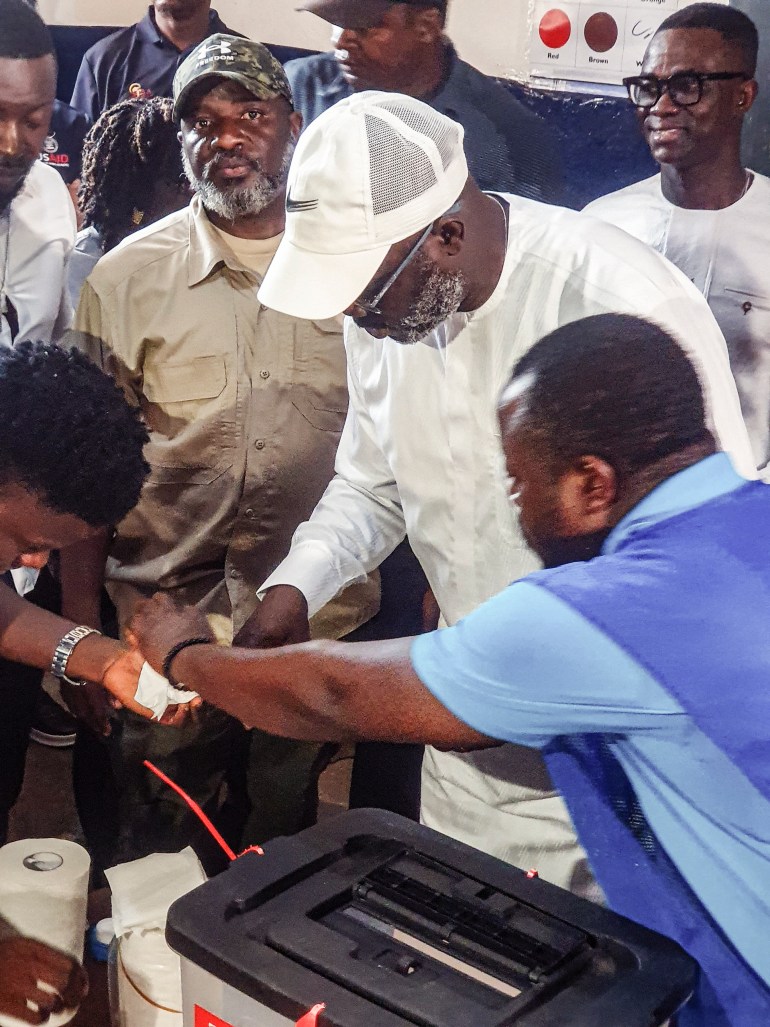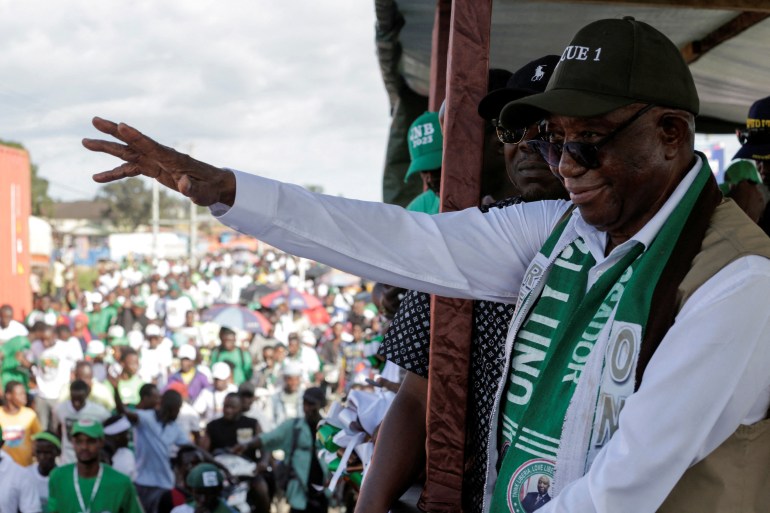Polls close in Liberia’s tightly contested presidential run-off
The incumbent, former footballer George Weah, faces off against political veteran Joseph Boakai.

Polls have closed in Liberia’s presidential run-off, in which voters chose whether to hand former football star George Weah a second term in office or elect political veteran Joseph Boakai.
In the first round on October 10, Weah, 57, took 43.83 percent of the votes while Boakai, 78, won 43.44 percent. The incumbent’s edge of just 7,126 votes had built anticipation for a closely contested second round on Tuesday.
Keep reading
list of 3 itemsLiberia’s Weah and rival Boakai meet again in presidential run-off
Liberia has suffered 20 years of ‘negative peace’. It’s time for change
This was Liberia’s fourth post-war presidential election, and the first one without the presence of a United Nations mission that previously had provided support to the National Elections Commission.
Controversial first term
Weah, who is more popular with young people, has asked for more time to come through on his promises to crack down on corruption and improve livelihoods in one of the world’s poorest countries. Liberia is still struggling from the aftermath of two civil wars from 1989 to 2003 and the 2013-16 Ebola epidemic, which killed thousands of people.
Weah said he has supported education, built roads and hospitals, and brought electricity into homes.

However, his detractors, including Boakai, pointed to a poor record on corruption, high youth unemployment and general economic hardship.
“There is a mismatch between words and action,” said Ibrahim Al-bakri Nyei, director of the Monrovia-based Ducor Institute for Social and Economic Research.
Boakai, who served as vice president from 2006 to 2018, has significant public and private sector experience, but the 78-year-old’s age is considered a handicap.

Weah and Boakai have received endorsements from candidates who lost in the first round.
A decisive factor could be how the 6 percent of voters whose ballots were invalidated in the first round decide in the run-off.
Turnout could also be key, said Lawrence Yealue, who runs the civil society group Accountability Lab Liberia.
He expects a lower turnout than the record 79 percent on October 10 when the presidential vote was coupled with parliamentary elections.
Although generally peaceful, several clashes between vying factions took place in the lead-up to the elections. On Tuesday, there were no reports of major incidents or violence.
The head of the Economic Community of West African States Election Observation Mission to Liberia, Attahiru Jega, praised the “calm and order prevailing in the various voting centres visited” around Monrovia.
Liberia’s economy grew 4.8 percent in 2022, driven by gold production and a relatively good harvest, but more than 80 percent of the population still faces moderate or severe problems getting enough to eat, the World Bank said in July.